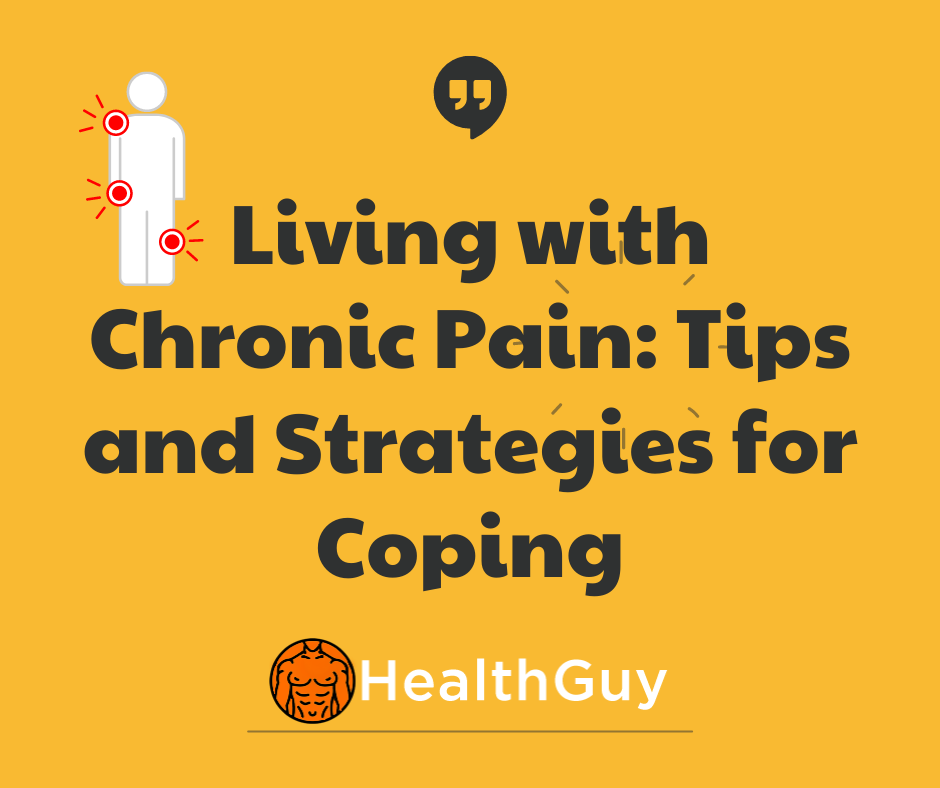
Living with Chronic Pain: Tips and Strategies for Coping
Chronic pain is a persistent pain that lasts for more than three months and affects the daily activities of an individual. Chronic pain can arise from various conditions such as arthritis, back pain, nerve damage, fibromyalgia, and migraines. Chronic pain can impact the physical, emotional, and social well-being of an individual. In this article, we will discuss the causes of chronic pain, its management, and ways to improve the quality of life.
Causes of Chronic Pain
Chronic pain can result from various conditions, including:
- Arthritis: Arthritis is a joint inflammation that causes pain, swelling, and stiffness in the joints. Osteoarthritis and rheumatoid arthritis are the most common types of arthritis that cause chronic pain.
- Back Pain: Back pain can result from several conditions such as herniated disks, spinal stenosis, and osteoporosis. The pain can be chronic and severe, making it difficult for individuals to perform daily activities.
- Nerve Damage: Nerve damage can cause neuropathic pain, which is a type of chronic pain that results from damaged nerves. This pain can be severe and is often described as burning, stabbing, or tingling.
- Fibromyalgia: Fibromyalgia is a chronic pain condition that affects the muscles and soft tissues. The pain can be widespread, and individuals with fibromyalgia may experience fatigue, sleep disturbances, and mood changes.
- Migraines: Migraines are severe headaches that can last for several hours or days. They can be debilitating and interfere with daily activities.
Management of Chronic Pain
Chronic pain can be challenging to manage, and there is no one-size-fits-all approach. The management of chronic pain involves a combination of medication, physical therapy, and lifestyle changes.
- Medication: Medications such as acetaminophen, nonsteroidal anti-inflammatory drugs (NSAIDs), opioids, and antidepressants can be used to manage chronic pain. However, opioids should only be used as a last resort due to the risk of addiction and overdose.
- Physical Therapy: Physical therapy can be an effective way to manage chronic pain. It can help improve flexibility, strength, and range of motion, which can reduce pain and improve function.
- Lifestyle Changes: Lifestyle changes such as exercise, healthy eating, stress management, and adequate sleep can also help manage chronic pain. Exercise can help reduce pain and improve function, while healthy eating can help reduce inflammation in the body.
- Alternative Therapies: Alternative therapies such as acupuncture, massage, and chiropractic care can also be used to manage chronic pain. These therapies can help reduce pain and improve function.
Improving Quality of Life
Chronic pain can impact the quality of life of an individual, and it is essential to take steps to improve their overall well-being.
- Stay Active: Regular physical activity can help improve the overall health of an individual and reduce pain. It is essential to start with low-impact exercises such as walking, swimming, or yoga and gradually increase the intensity.
- Eat a Healthy Diet: A healthy diet rich in fruits, vegetables, lean protein, and whole grains can help reduce inflammation in the body and improve overall health.
- Get Enough Sleep: Adequate sleep is essential for overall health and can help reduce pain. It is recommended to aim for 7-8 hours of sleep each night.
- Practice Stress Management: Chronic pain can be stressful, and it is essential to practice stress management techniques such as deep breathing, meditation, or yoga.
- Seek Support: Chronic pain can be isolating, and it is important to seek support from family, friends, or a support group. Talking to others who understand the challenges of chronic pain
